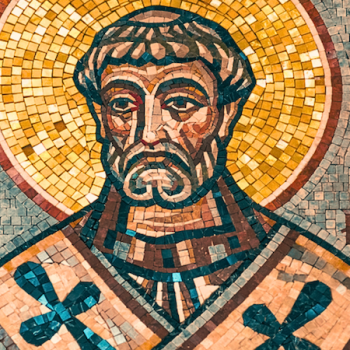Now Featured at the Patheos Book Club
Teach Us To Want
Longing, Ambition and the Life of Faith
By Jen Pollock Michel
Book Excerpt
What Do You Want?
As a mother with the will to write, I am plagued by self-doubt. Is this work I do career? Is it hobby? Is it calling? I am driven to define what I am doing in an effort to categorize it, to label it, to locate it on the map of good and bad, selfless and selfish. But I've realized that my efforts meet and challenge this theology of desire with which I've been stuck since my earliest days as a Christian, and I can't help but ask: am I really wrong to write because I want to?
Is it true that the hardest, least desirable choice is the most obviously holy? Is it true that personal desire must never be trusted? Am I right to immediately incriminate ambition? Many, like me, imagine desire and faith in a boxing ring, facing off like opponents. We don't suppose both can be cheered at the same time. At the end of the day, one will be left standing. The other will fall. We easily dismiss desire, arguing that the goal of the Christian life is obedience. Why promote desire? Doesn't that necessarily put us in the path of potential treachery?
These hesitations about desire are particular to my story, but they represent a common struggle for many Christians. One doesn't have to be a mother or a writer or even a converted reprobate to recognize the inherent tensions of desire. How do we ever know when desire isn't the apple of self-actualizing promise leading us far from God? Can it ever be possible to trust our own hearts?
We simply can't ignore desire. Like a heartbeat, desire pulses steadily in the backdrop of our lives. We may not always be aware of the work desire is doing, and yet it provides much of the necessary energy on which we rely. We get out of bed, go to work, get to the gym, marry (or not), have babies (or not), write books—follow Jesus—because in some measure, we want
Desire is primal: to be human is to want. Consider that wanting is the earliest language we learn. As infants, when we're yet incapable of forming words on our tongue, we're infinitely good at knowing what we want -- and, for that matter, getting it. And if desire is as innate as I describe, it means that wanting, as part of the human experience, is not to be rejected but embraced. I don't mean to say that we should model our lives of wanting on the red-faced screaming of a baby who's hungry, needs her diaper changed or has lost her pacifier, which her mother, on the basis of principle, refuses to retrieve. There are better ways of communicating and healthier means of expression.
The gospel of Jesus Christ meets our holy hesitations about desire, without eliminating the tension or minimizing the dangers, yet suggesting it can be reformed. Though we can indeed want in ways that go tragically wrong, in the words of the apostle Paul, we are "buried with [Christ] by baptism into death, in order that, just as Christ was raised from the dead by the glory of the Father, we too might walk in newness of life" (Romans 6:4). Might not this newness of life include a newness of desire?
Reflecting on our desires asks us to address the more naked parts of who we are and why we do what we do. When we talk about desire, we undress our hearts. We worm our way into intention and hope to arrive at self-awareness. When we're stuck in patterns of chronic sin, we should think to ask, "What must I be wanting to continually persist in these choices?" We usually know that something is driving our behavior, but the forces often feel imperceptible to us. The simple question, "What do I want?" can lead to important change.
—Adapted from chapters one and two, "Afraid to Want" and "Aperture of the Heart"
7/16/2014 4:00:00 AM




